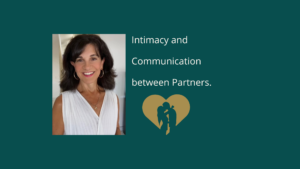Feeling a loss of self-identity in your relationship, although your relationship may appear wonderful to the outside world, can be a lonely and confusing place. Possibly over the years you may have compromised parts of yourself to keep the peace and find yourself living a life for everyone else. Maybe you want to learn to become more emotionally available to yourself and others. Maybe you’ve experienced early childhood trauma that’s created an internal barrier to your emotions and sexuality when you’re in a relationship and you want to learn how to self-love and feel at home with being ‘you’.
Having worked with hundreds of Couples and Individuals as a Relationship Specialist and Coach, I find there’s a common theme of people compromising who they are to fit into their relationship – helping people through the terrains of rediscovering who they are towards becoming empowered in expressing themselves.
Signs you may be losing your sense of self in a relationship
Losing yourself in a relationship can happen slowly and can be difficult to pin point when it began. When couples go into a relationship, they’re all in, giving each other everything. Then after the ‘honeymoon’ phase, the functionality of every-day life settles in, routines, habits and priorities are formed, creating an underlying theme to the relationship. Losing that sense of self-identity in a relationship can look different, like:
- No longer doing personal interests you used to enjoy
- Only doing things that interest your partner and/or the kids
- Giving all your time and energy over to your partner
- Not spending enough time with other significant people in your life (friends/family)
- Putting others needs first in front of your own
- Not looking after your mental, emotional or physical well-being
Ideally, relationships allow you to grow together with your partner, while growing independently. Maintaining this sense of self independence and self-identity as the relationships evolves is essential.
Reasons for compromising sense of self
To understand the reasons can be the beginning of making changes towards regaining that sense of self. Some reasons why identity may have been compromised are:
Not looking after own needs. This appears in different ways, like possibly being afraid to voice what you’d like or need, to avoid feeling judged, or appear selfish or to uphold an image or keep it together for the kids. Maybe you don’t know what your needs are anymore or maybe you hold yourself back from expressing what you’d really like.
Possibly people pleasing is something you’ve done for so long as a way of keeping the peace, but it keeps you suppressed. Possibly over a long period of time, you may have not felt heard and so you’ve given up.
Co-dependency. This can be either one or both partners where they’re co-dependent on each other. This happens for various reasons. For some, they may be indecisive by nature and seek their partner to make up their mind for them. Others have enmeshed their personality into their partners, so they don’t have to face difficult issues within themselves. Some may be aware or maybe they’re not be aware, that they’re being emotionally manipulated and are continually self-doubting themselves, so they give their power to their partner to control.
Low self-esteem or self-worth. The place of feeling low self-esteem or self-worth can happen for different reasons. Some may have grown up where they weren’t encouraged or possibly allowed to develop their sense of individuality separate to their family. Where feeling safe and secure enough to express one’s own perspectives was not seen as acceptable. Others may have experienced a traumatic upbringing or traumatic events/situations in their life, or traumatic abusive relationships, leaving them with a shaky and unsafe sense of self.
Ways to strengthen your Self-Identity in a relationship
Honouring individuality between partners is key to a healthy relationship. For both partners to be willing in doing the work in making changes takes patience, time and consistency.
Being in a relationship can bring lots of happiness into your world. Navigating your individuality within a relationship, amid all those good feelings, can be tricky at times. Finding balance together as a couple while maintaining your own independency also helps to strengthen your trust, feeling confident and safe knowing your partner is committed to the relationship, whilst they’re growing individually and pursing their personal interests.
Some ways to maintain self-identity within a relationship include:
- Maintain interests that you feel are important to you
- Keep in contact with loved ones, spend time with them
- Make time to sit down with your partner and talk about your personal interests
- Reflect on what makes you happy as individual and action more of that into your life
- Share your goals with your partner and listen to your partners goals
- Prioritise your general well-being: balanced home/work/family life, shared raising children responsibilities, make time for exercise, eat healthy, be aware of your mental health state. Seek professional help when needed
- Allow yourself to make decisions for yourself, let your partner know if you need some more time
- Saying ‘no’ when something doesn’t feel right to you
- Not keeping yourself small, so as to make it comfortable for others
~ Things will only change, when we make changes happen ~
Article by Linda Kelly, Relationship Coach.
Linda Kelly offers coaching and counselling for those seeking clarity on their self-identity to live more authentically in their truth and have enriched relationships with others.
Having coaching and counselling around exploring your identity can be that significant turning point in your life, so you’re able to be supported in making the changes towards maintaining a healthy sense of identity, as an individual and as a partner within a relationship.






